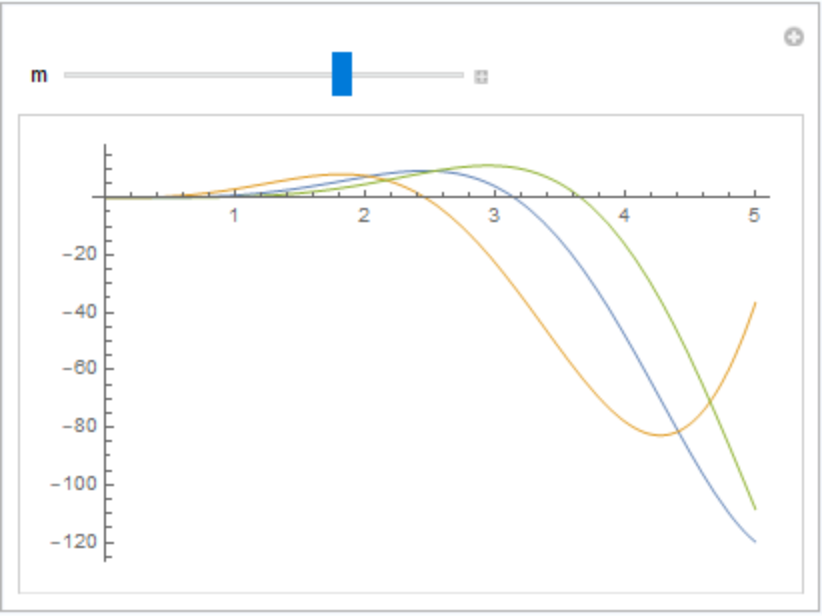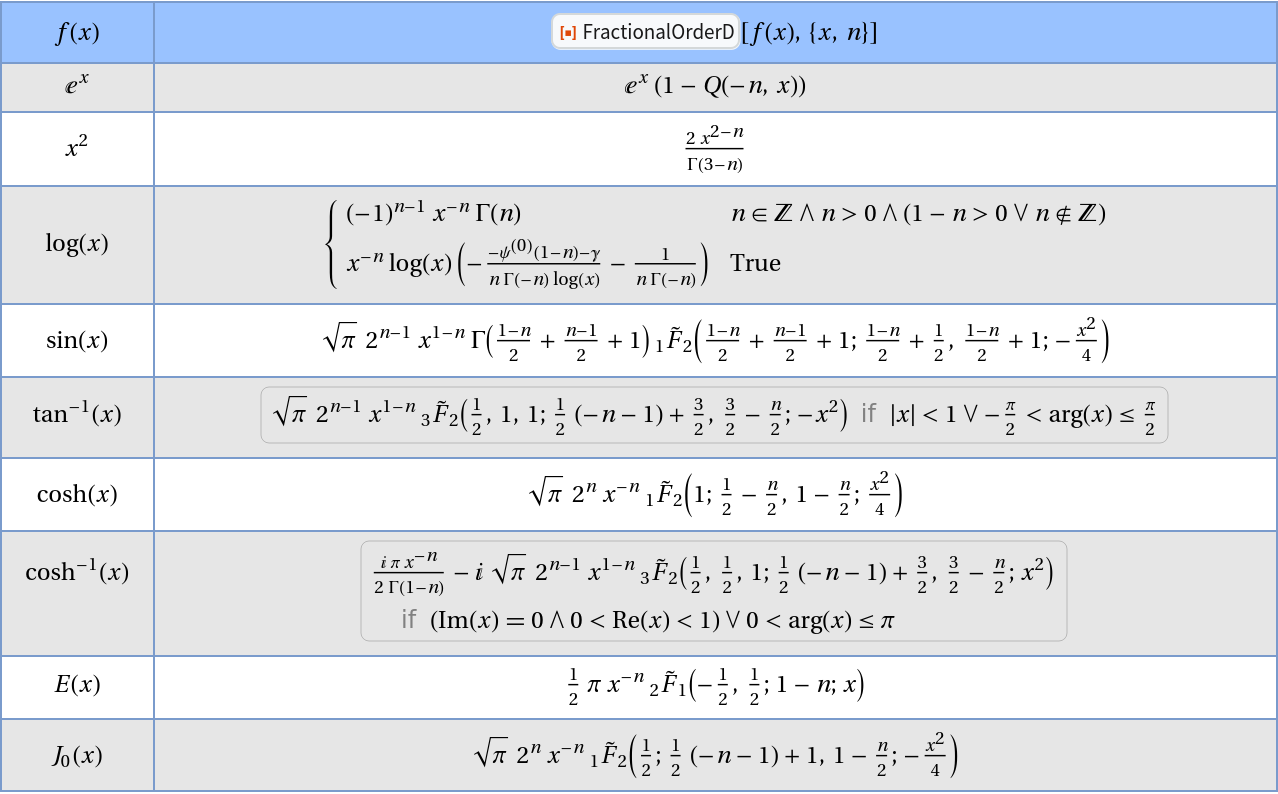Compute the fractional derivative of an expression
Contributed by:
Oleg Marichev & Paco Jain (Wolfram Research)
Examples
Basic Examples (5)
Compute a fractional derivative of a power function:
The first-order fractional derivative is equivalent to differentiation:
The negative-first-order fractional derivative is equivalent to indefinite integration:
Compute the fractional derivative of symbolic order α of an exponential function:
Compute the fractional derivative of symbolic order α of a logarithmic function:
Scope (1)
FractionalOrderD works with symbolic orders α:
Possible Issues (1)
FractionalOrderD may return results in terms of Unevaluated sums:
Interactive Examples (1)
Varying α from 0 to -1 smoothly relates a function and its derivative:
Neat Examples (1)
Create a table of fractional derivatives:
Related Links
Version History
-
3.2.0
– 14 August 2023
-
3.1.4
– 07 November 2022
-
3.1.3
– 11 October 2022
-
3.1.2
– 11 October 2022
-
3.1.1
– 23 August 2022
-
3.1.0
– 23 August 2022
-
3.0.0
– 23 August 2022
-
2.1.0
– 11 September 2021
-
2.0.0
– 05 October 2020
-
1.0.0
– 23 September 2020
Related Resources
Author Notes
There are different ways of defining the fractional integro-derivative. The current implementation (v 1.0) implements only the Riemann-Liouville formulation. Another frequently used definition, the Grunwald-Letnikov formulation should perhaps be implemented in a future version.


![f[x] := x^3 Sin[x];
Manipulate[
Plot[Evaluate@{f[x], D[f[x], x], ResourceFunction["FractionalOrderD"][f[x], {x, m}]}, {x, 0, 5}], {m, 0, -1}]](https://www.wolframcloud.com/obj/resourcesystem/images/b8a/b8a39393-8652-47a7-95ad-cbc6bddd9685/3-0-0/03ff1e83df41864b.png)

![Grid[Join[{{f[x], Inactive[
ResourceFunction["FractionalOrderD"]][f[x], {x, n}]}}, Transpose[{flist, ResourceFunction["FractionalOrderD"][flist, {x, n}]}]], Background -> {None, {{None, GrayLevel[.9]}}, {{1, 1} -> Hue[.6, .4, 1], {1, 2} -> Hue[.6, .4, 1]}}, BaseStyle -> {FontFamily -> Times, FontSize -> 12}, Dividers -> All,
FrameStyle -> Hue[.6, .4, .8], Spacings -> {2, 1}] // TraditionalForm](https://www.wolframcloud.com/obj/resourcesystem/images/b8a/b8a39393-8652-47a7-95ad-cbc6bddd9685/3-0-0/50fab292b6e60772.png)
